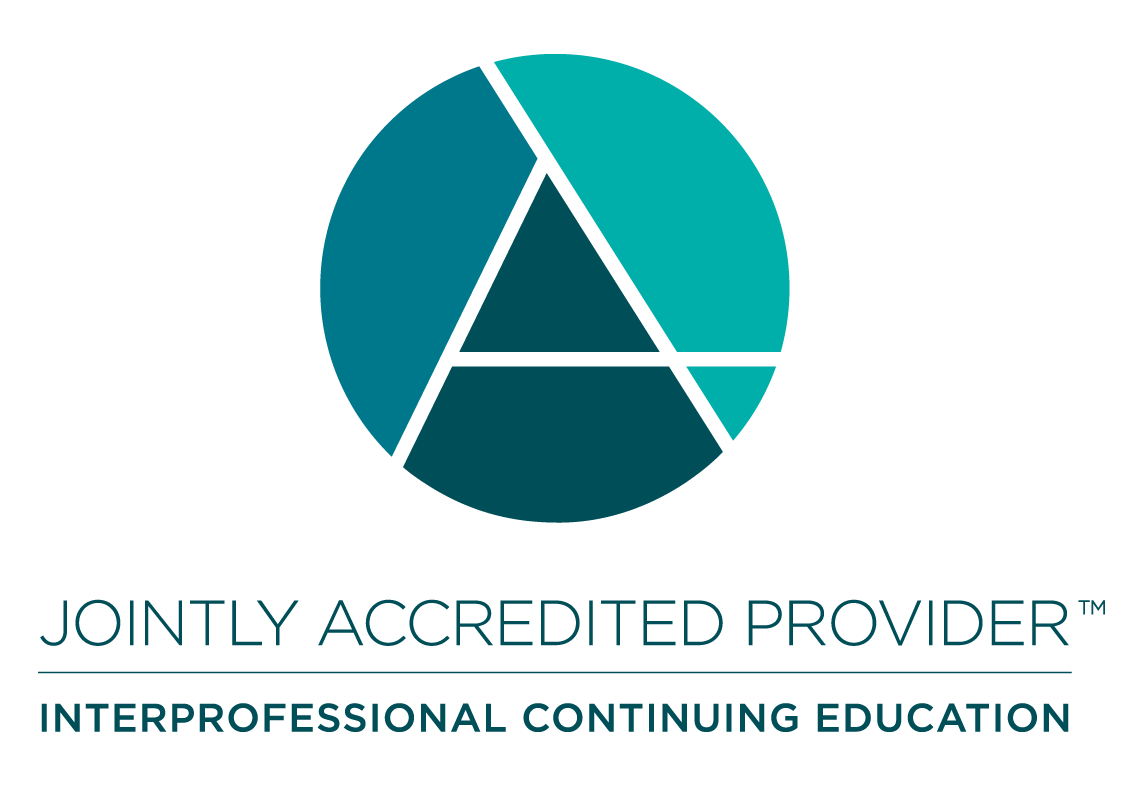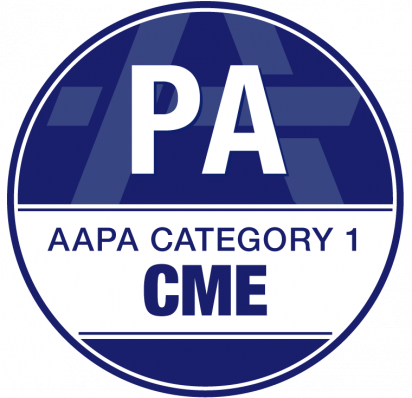
Sedative Use Disorder: Reviewing Best Practice Models of Care and Taper Strategies
-
Register
- Non-Member - $39
- Regular Member - $29
- Retired - $29
- Early Career Physician - $29
- Resident - $19
- Student - $19
- Associate - $19
- ASAM Staff - Free!
- International Member - $29
- Emeritus Member - $29
- Provisional Member - $29
- Fellow Member - $29
- Honorary Member - $29
- CRT Member - $29

Sedative Use Disorder: Reviewing Best Practice Models of Care and Taper Strategies
Recorded: Thursday, April 4, 2024 to Sunday, April 7, 2024
On-Demand Session
Overview
This 75-minute on-demand session from the ASAM 55th Annual Conference addresses the common barriers to care and list common treatment challenges and pitfalls in the administration of treatment for sedative use disorders.
Management of sedative use disorders remains an area of unmet need within the field of Addiction Medicine. This workshop will give participants an opportunity to review the available literature and guidance on the management of this challenging disorder, while introducing new and innovative models of care. Conducted using cased-based and small group learning, this interactive workshop will encourage participants to consider and overcome barriers to sedative use disorder treatment within their own systems of care.
The target audience for this Intermediate level session includes physicians, nurse practitioners, physician assistants, other clinicians, researchers, residents, fellows, students, and counselors.
This session addresses the following ACGME Competencies: Medical Knowledge, Systems-based Practice
This session addresses the following ICPE Competencies:Values and Ethics
Learning Objectives
Upon completion, learners will be able to:
- Upon completion, participants will be able to describe current strategies for sedative use disorder management and describe the group medical model of care developed at Cooper.
- Upon completion participants will be able to define the common barriers to care and list common treatment challenges and pitfalls in the administration of treatment for sedative use disorders.
- Upon completion, participants will be able to conduct an evaluation of their own home healthcare systems and describe strategies for improving sedative use disorder care within those systems.
Registration Rates
| Rate Description | Rate |
| ASAM Member | $29 |
| Non-Member | $39 |
| Associate Member | $19 |
| Resident Member* | $19 |
| Student Member* | $19 |
*Residents, Fellows-in-training, Interns, and Students must join ASAM to receive a discounted registration rate. Click here to become an ASAM member. National and Chapter membership dues apply. There is no charge for Students to become a Member, but verification of student status is required.
Membership Question? Call ASAM at 1.301.656.3920, email us, or view the ASAM website for more information.
Refunds & Cancellations
All ASAM eLearning Center refund requests must be made in writing to education@asam.org within 90 days of purchase. Those requesting refunds for courses that are in progress will receive partial refunds or e-Learning Center credit. Automatic full refunds will be made for any course with a live-course component that has been cancelled.
Registration Open: 05/06/2024 - 04/06/2027
User Access Closed: 05/06/2027
Session Instructions
- Click on the Contents tab to watch the on-demand recording.
- Click Complete Post Test to answer multiple choice questions. Participants will have 10 attempts to pass and must answer 4 out of 5 questions correctly.
- Click Complete Evaluation to provide valuable activity feedback. Scroll down on all questions as there may be answer options that expand past the size of the window.
- Click the button Claim Medical Credits in the box titled Claim Credits & Certificate. Choose the type of credit and click submit. Click the button View/Print Certificate to save or print your certificate. You can view/print your certificate at any time by visiting the ASAM eLearning Center, clicking Dashboard, and clicking Transcript/Achievements.
Need Assistance?
For assistance logging in, accessing activities, claiming credit, or for other questions or concerns, please check the FAQ page or e-mail Education@ASAM.org
ASAM is proud to offer Essential Accessibility to ensure our website is accessible and functional for all our learners while providing free assistive technology for people with the widest possible range of abilities.
Christopher Milburn, MD
Physician
Cooper University Healthcare
Christopher Milburn MD is a psychiatrist and addiction medicine physician, currently serving as the director of co-occurring care at Cooper University Hospital’s Center for Healing. He graduated from Jefferson Medical College and completed his psychiatry residency at Thomas Jefferson University Hospital. He has a particular interest in the treatment of sedative use disorders and development of new models of co-occurring psychiatric care delivery. He serves as the Associate Program Director for the Addiction Medicine fellowship and is an Assistant Professor of Psychiatry at Cooper Medical School of Rowan University, where he teaches and mentors medical students, residents, fellows and other learners in substance use treatment.

Christina Ferrari, MD
Physician, Addiction Medicine, Family Medicine
Cooper University Healthcare
Christina Ferrari, MD is an Addiction Medicine physician and Instructor of Family Medicine employed with Cooper University. She is a graduate of Drexel College of Medicine and completed Family Medicine Residency training with UPMC St. Margaret. She attended fellowship with Caron Treatment Centers and Tower Health System's Reading Hospital. She currently holds dual board certifications in Addiction Medicine and Family Medicine. She serves as the Associate Medical Director of the Cherry Hill Recovery Village.
Dr. Ferrari co-founded the Sedative Dependence Group at Cooper Center for Healing. This pioneering initiative is designed to assist patients in safely and comfortably tapering off benzodiazepines. Her commitment to addressing sedative dependence underscores her dedication to improving the lives of individuals navigating addiction challenges.
Xin Gao, PharmD, MSc
Pharmacist
Cooper University Healthcare
Dr. Xin Gao, PharmD, MS, serves as a Clinical Pharmacist in Addiction Medicine at Cooper University Hospital both inpatient and outpatient at the Center for Healing. She earned her Doctorate of Pharmacy from the University of Maryland and her Master's in Biology from Rutgers University. Dr. Gao specializes in providing evidence-based inpatient and ambulatory care for individuals with substance use disorders. Notably, Dr. Gao actively participates in chronic pain management with a focus on patients with complex care. Prior to this, Dr. Gao served as a Community Pharmacy Manager, bringing a wealth of experience in community healthcare.
Carley Schaffer, MS, LCADC, CCTP, CCS
Counselor
Cooper University Healthcare
Carley Schaffer, MS, LCADC, CCTP, CCS
Carley Schaffer is an experienced Licensed Clinical Alcohol and Drug Counselor who works with Cooper University Health Care in Camden, New Jersey. She is currently providing counseling services to patients in both the Cooper Center for Comprehensive Health and the Cooper Center for Healing.
Her approach to treating addiction involves educating both individuals and families. She focuses on identifying the strengths of her patients and encouraging them to be resilient in the face of challenges. Her ultimate goal is to empower her patients to overcome obstacles and achieve long-lasting recovery. She has extensive knowledge of the intersection of trauma and addiction, which makes her a valuable resource for both her patients and the treatment team.
Carley is a Certified Clinical Trauma Professional and Certified Clinical Supervisor. She earned a Master of Science in Addiction Counseling and a Post-Master’s Certificate in Trauma Counseling from Grand Canyon University. As an undergraduate, she earned a Bachelor of Science, Summa Cum Laude, in Behavioral and Addictions Counseling at Drexel University.
Accreditation & Credit Designation Statements
Joint Accreditation Statement

In support of improving patient care, the American Society of Addiction Medicine is jointly accredited by the Accreditation Council for Continuing Medical Education (ACCME), the Accreditation Council for Pharmacy Education (ACPE), and the American Nurses Credentialing Center (ANCC), to provide continuing education for the healthcare team.
Physicians
The American Society of Addiction Medicine designates this enduring material for a maximum of 1.25 AMA PRA Category 1 Credits™. Physicians should claim only the credit commensurate with the extent of their participation in the activity.
Nurses
This activity awards 1.25 Nursing contact hours.

PAs
ASAM has been authorized by the American Academy of PAs (AAPA) to award AAPA Category 1 CME credit for activities planned in accordance with AAPA CME Criteria. This activity is designated for 1.25 AAPA Category 1 CME credits. Approval is valid until 05/06/2027. PAs should only claim credit commensurate with the extent of their participation.
Social Workers
As a Jointly Accredited Organization, ASAM is approved to offer social work continuing education by the Association of Social Work Boards (ASWB) Approved Continuing Education (ACE) program. Organizations, not individual courses, are approved under this program. Regulatory boards are the final authority on courses accepted for continuing education credit. Social workers completing this course receive 1.25 general continuing education credits.
IPCE Credit
This activity was planned by and for the healthcare team, and learners will receive 1.25 Interprofessional Continuing Education (IPCE) credits for learning and change.
California Association for Drug/Alcohol Educators (CAADE)
This educational program is approved by CAADE: #CP40 999 1225.
California Association of DUI Treatment Centers (CADTP)
This educational program is approved by CADTP: #205.
California Consortium of Addiction Programs and Professionals (CCAPP)
This educational program is approved by CCAPP: #OS-20-330-1224.
Continuing Education Credits (CEUs)
Upon completion of the activity and online evaluation, all other participants may request a certificate of participation. Participants may submit this certificate of participation to their professional organization/institute as documentation for completing this accredited continuing activity.
Maintenance of Certification (MOC) or Continuing Certification Programs (CCP)
This activity meets the requirements for MOC/CCP for the following primary physician boards and for state licensing CME requirements. MOC Credit is only reported for ABA, ABP, ABIM, and ABS. By completing the online credit application and evaluation, the learner permits ASAM to report credits to the appropriate Board. Learn more.
- American Board of Medical Specialties (ABMS)
- American Board of Preventive Medicine (ABPM)
- American Board of Internal Medicine (ABIM)
- American Board of Pediatrics (ABP)
- American Board of Surgery (ABS)
- American Board of Psychiatry and Neurology (ABPN)
- American Board of Addiction Medicine (ABAM)
- Royal College of Physicians and Surgeons of Canada (RCPSC)
- Through an agreement between the Accreditation Council for Continuing Medical Education and the Royal College of Physicians and Surgeons in Canada, medical practitioners participating in the Royal College MOC Program may record completion of accredited activities registered under the ACCME’s “CME in Support of MOC” program in Section 3 of the Royal College’s MOC Program.
Disclosure Information
In accordance with disclosure policies of ASAM and Joint Accreditation, the effort is made to ensure balance, independence, objectivity, and scientific rigor in all CME/CE activities. These policies include mitigating all relevant financial relationships with ineligible companies for the Planning Committees and Presenters. All activity Planning Committee members and Presenters have disclosed all financial relationship information. The ASAM CE Committee has reviewed these disclosures and determined that the relationships are not inappropriate in the context of their respective presentations and are not inconsistent with the educational goals and integrity of the activity. Click here to view the full disclosure listing.

